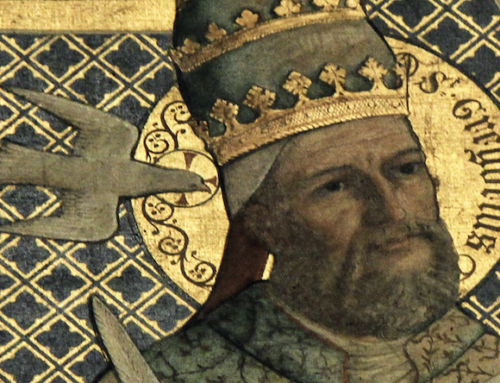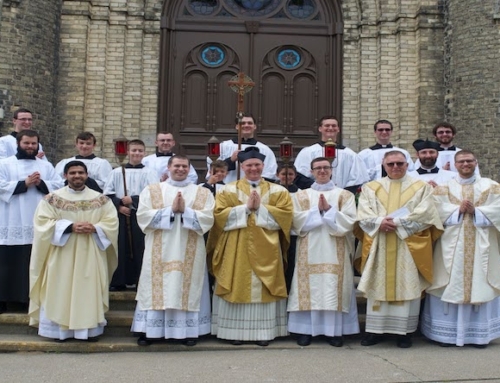Peter looked intently at [the crippled man by the Beautiful Gate], as did John, and said, “Look at us.” He paid attention to them, expecting to receive something from them. Peter said, “I have neither silver nor gold, but what I do have I give you: in the name of Jesus Christ the Nazorean, [rise and] walk.” Then Peter took him by the right hand and raised him up, and immediately his feet and ankles grew strong. He leaped up, stood, and walked around, and went into the temple with them, walking and jumping and praising God (Acts 3: 4–8).
Sometimes, the early Church seems so removed from the Church we experience now. Saint Peter, for example, was a disciple and a leader of disciples, “a slave and apostle of Jesus Christ” (2 Pet 1:1). Disciple though he was, he was also a miracle worker. Here is the trouble: many of us continue to follow Christ like St. Peter—or at least try—so why aren’t we seeing more miracles? Are we, then, supposed to give something else, something different than Peter’s miracle? He gave healing instead of money, but what do we have that we can give?
What can we give?
We have our thoughts and words, which we estimate to be very insightful. But when we share these with others, we often realize that they only express incomplete truths. We are not as insightful as we thought. What’s more, we usually give them in order to win the esteem of others, while these truths we claim as our own are just straw. We don’t want to give straw.
What can we give?
We have material goods, the “silver and gold” Peter didn’t have. But the value of these goods eventually fades because they don’t last. Perhaps we even alter Peter’s words, “I don’t really want to give you true charity or mercy, but I have silver and gold which I give you.” But we still hesitate to give these things away because we cherish what Peter boasts not to possess. We don’t want to give something that isn’t valuable, and if it’s valuable, we don’t want to give it away.
What can we give?
Apart from what we think or what we have, we also give our actions: what we can do for someone. Perhaps we have power and influence, but we also have weaknesses. Peter had the power to heal a crippled man, and we think we’re like Peter. But as it turns out, we’re more like the crippled man. We’re just as spiritually crippled as he was physically crippled, often lamenting, “I do not do what I want, but I do what I hate” (Rom 7:15). Our weaknesses blunt what we can do for someone.
What can we give?
Peter’s example answers this question by correcting the question itself. When we see that we’re only able to give what we have received, all of a sudden the question is different. We no longer ask, “What can we give?” Instead, we kneel before the Lord and ponder, “What have I been given?” Peter realized that the greatest thing he received was Christ himself, and he was the greatest gift Peter could give to the crippled man.
What we give, then, is Jesus Christ, who is the fullness of these things we thought we could give. He is Truth incarnate, Goodness itself, the Almighty. What can we give? We give Christ who illumines our darkness, satisfies the heart, and lifts us from our pitiful state.
The Apostles worked their miracles because of God working in them. We have something to give because we give this same Jesus who dwells in our hearts. As the crippled man sat by the Beautiful Gate, so we lie at the beautiful shores of paradise, but left to ourselves we are without the strength to enter. But our help is in the name of the Lord, who by his grace gives us strength to tread through the gates of this world into his bosom and to bring others with us. God continues this work in us as he did in St. Peter. So let us walk, maybe even jump. But above all, let us eagerly give praise to God for his wonderful gifts.
✠
Photo by Nick Fewings on Unsplash







